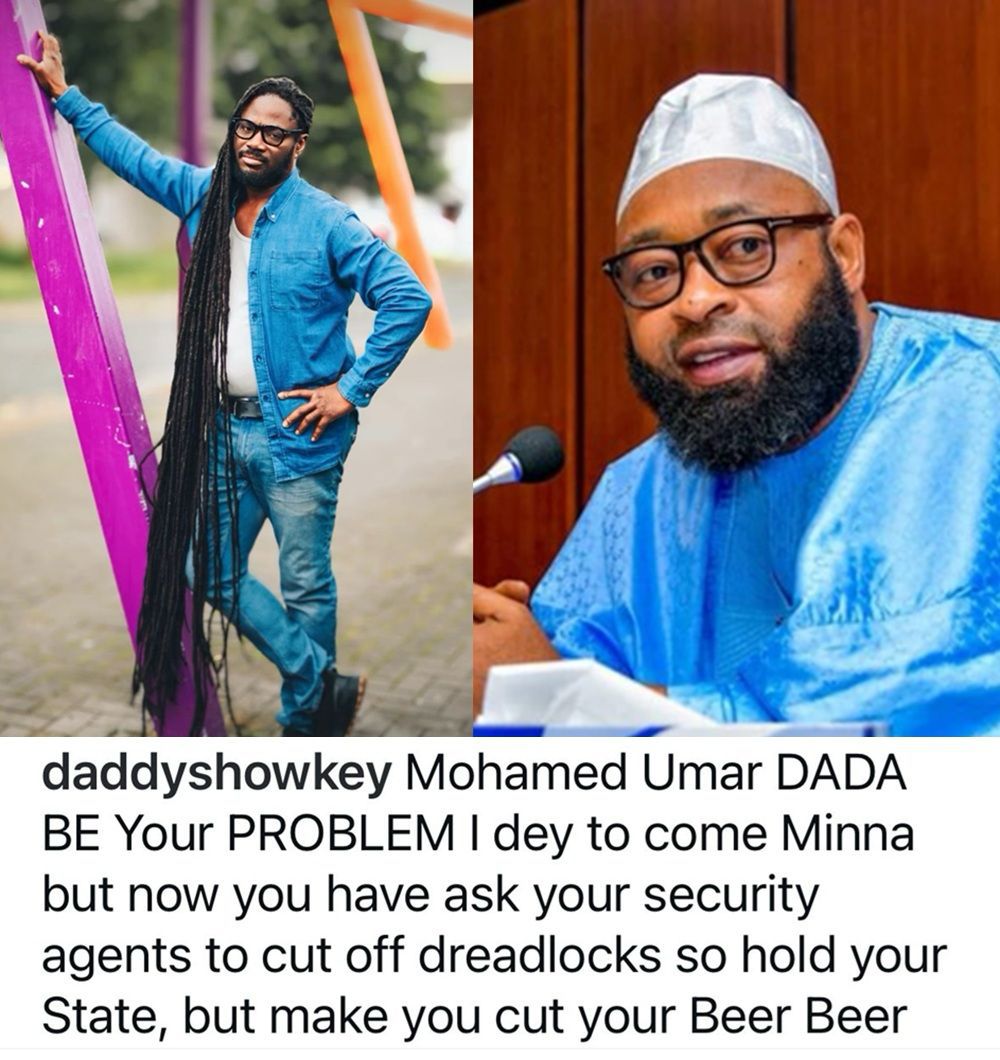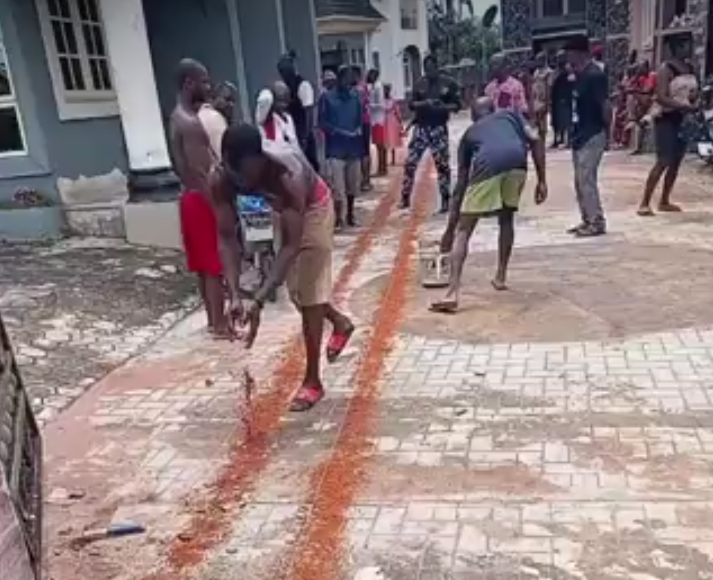
“Cut Your Beards” – Daddy Showkey Fires Back at Niger Governor Over Dreadlock Directive

In a fiery exchange on social media, Nigerian veteran singer Daddy Showkey has lashed out at the Governor of Niger State, Mohammed Umar Bago, following his controversial directive to arrest and shave men with dreadlocks in the state. Daddy Showkey, known for his outspoken nature and deep connection with the streets, took to his platform to voice his displeasure over the governor's move, which has since sparked heated discussions across the country.
Governor Bago’s directive came as a part of his efforts to maintain law and order in the state, with an explicit focus on individuals sporting dreadlocks, who he accused of being associated with negative social behaviors. According to the governor, the presence of dreadlocks was a symbol of rebellion and an outward expression of lawlessness that the state could no longer tolerate. In a swift reaction, security agents were instructed to arrest and forcibly cut the dreadlocks of any male found sporting them, a move that has drawn widespread criticism from Nigerians, particularly from those in the entertainment and creative industries, who view the governor's action as an attack on personal freedom and cultural expression.
Daddy Showkey, a pioneer of the galala music genre and a household name in the Nigerian music scene, was one of the first public figures to call out the governor’s directive. The musician, who is known for his grassroots support and his long-standing advocacy for societal issues, didn’t mince words in his response. In a post that quickly went viral, Daddy Showkey directly addressed Governor Bago, saying, “Be your problem I dey to come Minna but now you have asked your security agents to cut off dreadlocks so hold your State, but make you cut your Beer Beer.”
The “Beer Beer” reference, which means "beard" in Nigerian Pidgin, was a clear shot at the governor’s own grooming choices, which many observers quickly noted. Daddy Showkey’s pointed remark was a suggestion that if the governor was so intent on controlling the personal appearance of the people of Niger State, he should start with his own beard, a facial feature that is often seen as a symbol of masculinity and power. This comment struck a chord with many, both within and outside of the entertainment community, who felt that the governor's actions were not only an overreach but also a reflection of outdated attitudes towards personal expression.
In his post, Daddy Showkey emphasized the need for Nigerians to resist attempts by political figures to impose unnecessary restrictions on personal identity. He argued that the directive to cut dreadlocks was not only an infringement on personal freedom but also a form of discrimination against those who choose to express themselves in ways that are culturally significant to them. “It’s not about how you look, it’s about who you are. Dreadlocks don’t make you a criminal, and neither does any other form of personal expression. What matters is the content of your character,” Daddy Showkey continued in his post.
The public reaction to the governor’s decision, and Daddy Showkey’s subsequent criticism, has been mixed. While many have rallied behind Daddy Showkey’s bold statement, there are others who have supported the governor’s actions, arguing that it was a necessary step to curb what they perceive as the growing influence of “undesirable elements” in the state. Some even defended the governor’s claim that individuals with dreadlocks are often linked to gangs and criminal activities. However, such assertions have been widely debunked by cultural critics who argue that dreadlocks, like many other personal styles, are merely an aesthetic choice and have no inherent connection to crime or unruly behavior.
Daddy Showkey’s intervention in this matter has shone a light on the broader issue of government interference in personal choices, especially in a country where personal freedoms are frequently put to the test. The controversy also touches on the ongoing debate about the role of cultural expression and identity in Nigerian society, particularly as it pertains to young people who use fashion and style to communicate their individuality.
As a seasoned artist who has long championed the rights of the downtrodden and the marginalized, Daddy Showkey’s comments have ignited a conversation about the need for tolerance and acceptance of diversity in all forms. His statement comes at a time when many Nigerians are questioning the government’s priorities and their capacity to protect individual freedoms while maintaining law and order. By calling out the governor in such a direct manner, Daddy Showkey has solidified his stance as a vocal critic of policies that seek to stifle personal expression and freedom.
The response from the public has been overwhelming, with many taking to social media to express support for the veteran musician. Fans have praised Daddy Showkey for his bravery in standing up for what he believes is right, and his call for the governor to "cut your Beer Beer" has been widely shared, sparking debates about the power dynamics between political leaders and the people they govern. Many Nigerians have also questioned the governor’s motives, with some speculating that his directive was a form of populism aimed at bolstering his image ahead of future political campaigns.
While the controversy rages on, one thing is clear: Daddy Showkey’s impassioned response has struck a nerve with many Nigerians who feel that their right to self-expression is being threatened. For a country that prides itself on its rich cultural diversity, the notion that a government official can dictate what people wear or how they style their hair has raised serious concerns about the erosion of basic freedoms.
As the debate continues to unfold, it is clear that this issue goes beyond just dreadlocks or facial hair; it taps into deeper issues of identity, freedom, and the limits of government power in the lives of ordinary citizens. For now, Daddy Showkey remains one of the most vocal critics of the Niger State governor’s controversial directive, and his message has sparked an important conversation about personal rights and the responsibility of public figures to respect the individuality of their constituents. Whether the governor will reconsider his stance or dig in his heels remains to be seen, but one thing is certain: Daddy Showkey's words have ignited a fire that shows no signs of burning out anytime soon.


